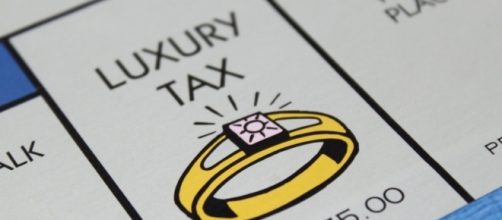The Luxury Tax is not just a term for Monopoly players. It is also a term that is relevant in the NBA, especially during the exciting days of free agency. Most franchise owners try to avoid the threshold that invokes the luxury tax, since it could lead to a great amount of personal losses financially. The Cleveland Cavaliers are one of the teams in that situation. For them, it just got a whole lot worse, too.
Cavaliers receive big bill
The Cavaliers were already destined to foot a luxury tax bill next season. Then, they decided to re-sign small forward Kyle Korver to a three-year, $22 million deal.
The team had already signed backup point guard Jose Calderon to a one-year deal. They hope to trade away forward Iman Shumpert -- perhaps to the Houston Rockets -- to clear up some space in their books. As it stands right now, however, ESPN projects the Cavs to pay $42.7 million in luxury taxes, and that doesn't even take into account the three other roster spots that are currently open.
In the past, Cavaliers owner Dan Gilbert has expressed a cautious willingness to endure the luxury tax. But $42.7 million is a lot to pay out of one's pocket, no matter how rich somebody is. That burden becomes even heavier to carry if a team's chances of contending aren't as high as the payroll suggests those chances should be.
The NBA is currently under the tight grip of the Golden State Warriors and teams are making moves to improve or deconstruct based on that fact, muddying up the money picture for everyone.
NBA faces the luxury tax
The Cavaliers are far from alone in salary cap purgatory. In fact, ESPN's Bobby Marks believes up to half of the league could find themselves above the luxury tax threshold next season.
Part of the reason is last year's salary cap explosion. NBA teams expected the salary cap to keep rising, so they gave extremely lucrative contracts to players who wouldn't have previously warranted one. The cap didn't jump as much as expected this year, turning those contracts into bad ones instantaneously.
The implications go beyond owners paying large bills for this season.
Next summer, teams will be much more reluctant to spend on free agents as the salary cap begins to stabilize. Outside of LeBron James, perhaps, most people hitting the open market next season should expect much rougher waters. That could actually make it easier for the Cavaliers to retain their star's services, though.


